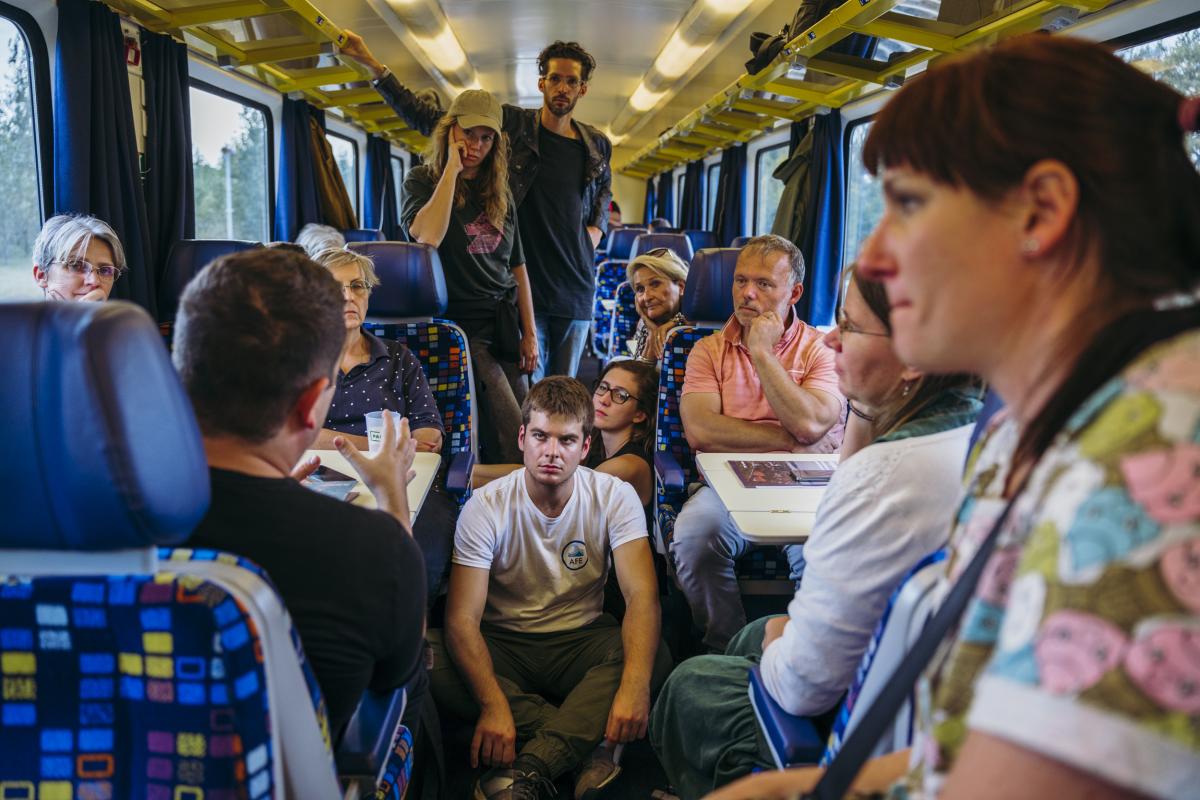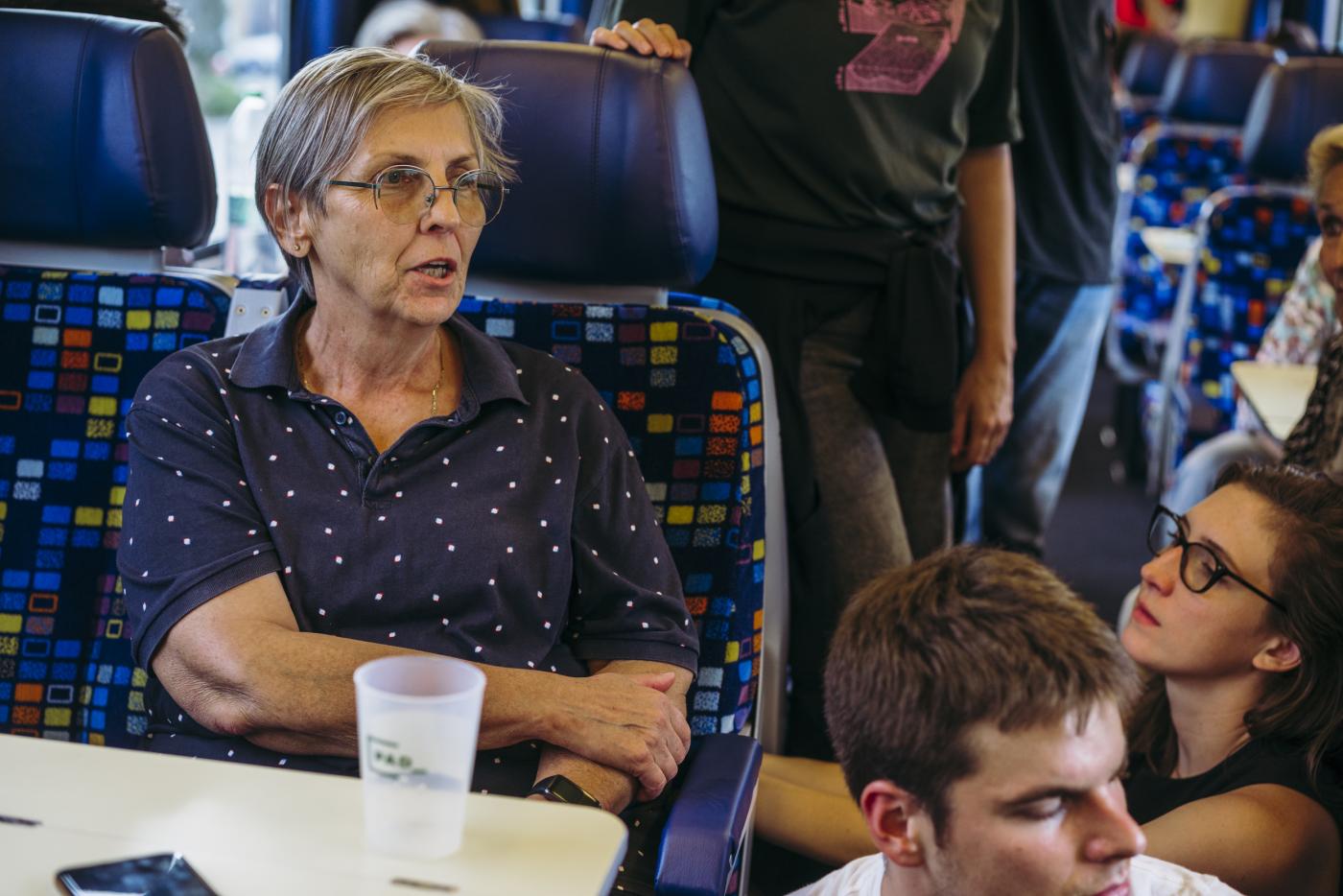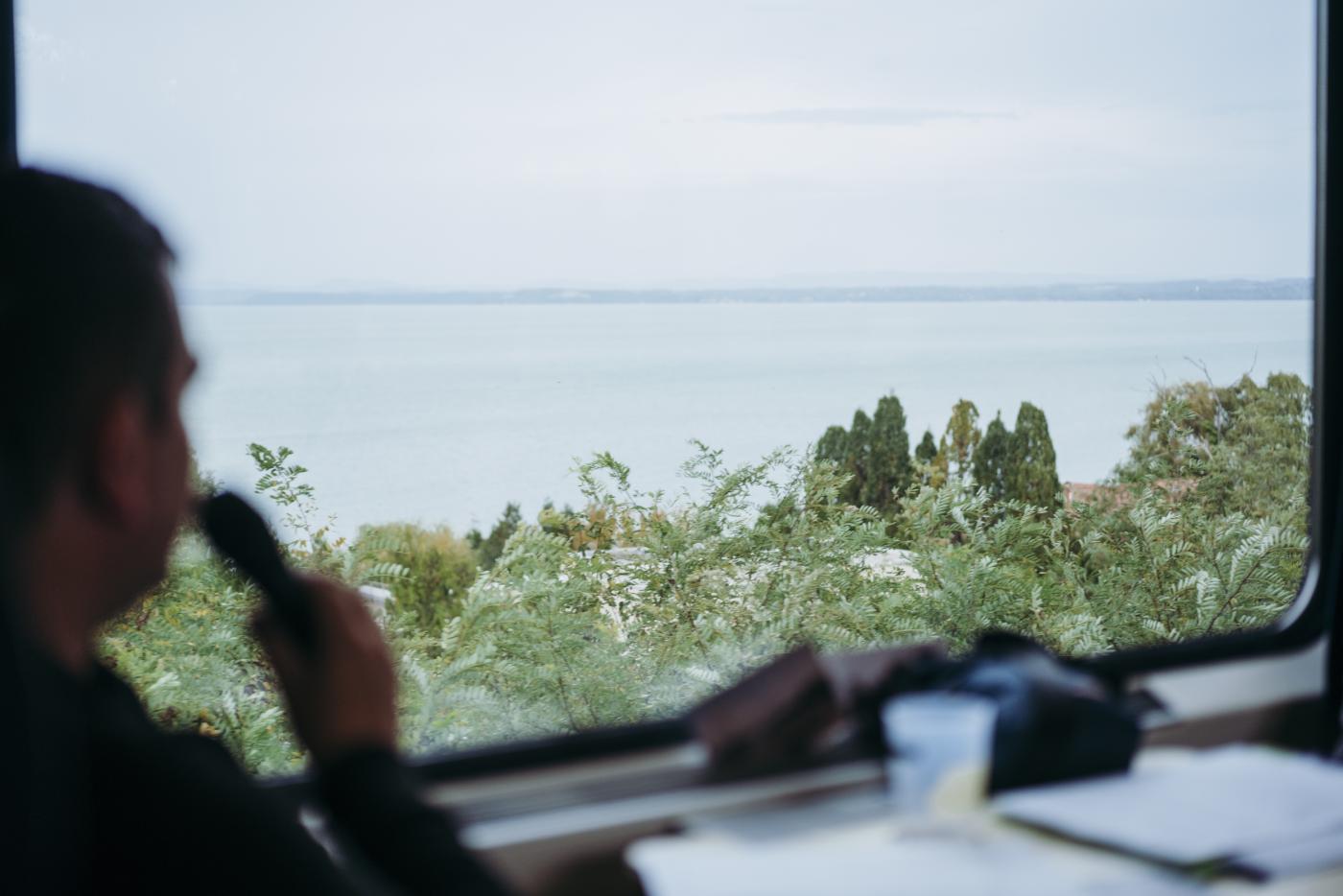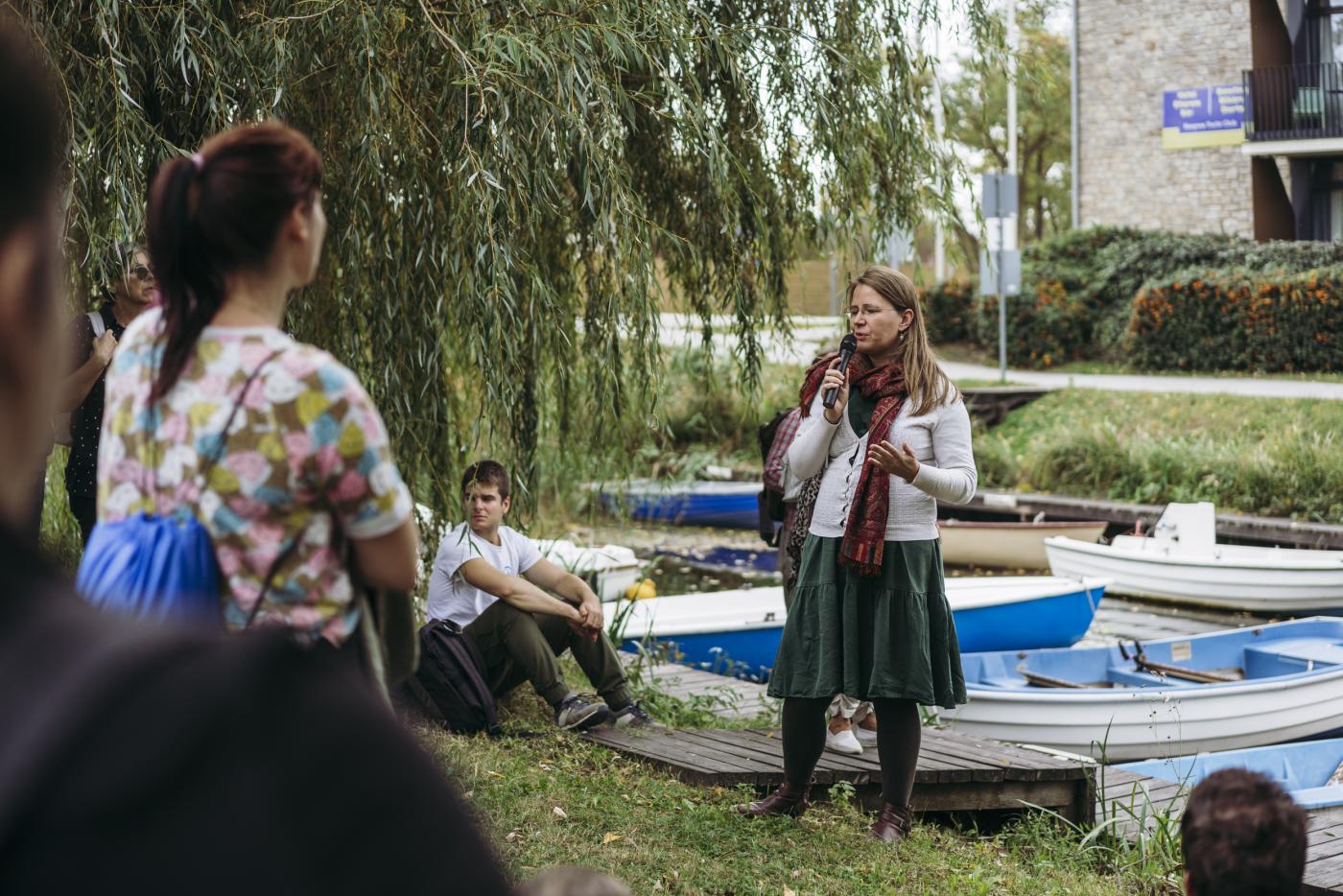
Transitional Spaces - Waterfront Concepts was the theme of an extraordinary train meetup in October. During the tour along the southern shoreline of Lake Balaton, the history and functions of waterfront areas were discussed from various disciplinary perspectives.
Such areas are called transitional spaces in architecture, ecotones or edges in ecology, and buffer zones in urbanism. The functions of these spaces are very diversified, as they provide a smooth connection and transition between habitats of different types and functions. This requires a specific biotope and microclimate, and the human land-use patterns should be adapted to this.
During her lecture aboard the train, architectural theorist Dr. Mateja Kurir introduced the topic by discussing transitional space as an architectural phenomenon, its characteristics, the unique nature of waterfront zones as transitional spaces, and the challenges posed by boundaries.

Upon reaching Lake Balaton, architect Domonkos Wettstein and ethnographer Vera Schleicher, in their landscape commentary on the train, examined changes in the built environment and associated cultural and social interactions over the past century. They focused on the southern shore of Lake Balaton, highlighting social interactions as a temporal and social process, particularly between holidaymakers and the indigenous population.

Ethnobiologist Dr. Anna Varga provided insights into traditional land use patterns in the coastal zone and changes in natural habitats during the tour of Lake Balaton Fenyves, with a specific focus on the coastal areas of Fenyves.

Limnologist and geoinformatics expert Dr. András Zlinszky addressed the ecological role of these areas, presenting the most crucial groups of organisms in the coastal zone and the ecological processes they sustain.
On the return train journey, the speakers engaged participants in small group discussions, exploring topics such as the functions of beaches and specific issues related to coastal zone use.
This MEETUP is a collaborative initiative between szabadonabalaton and GUBAHÁMORI, organized by PAD Foundation with the support of the Veszprém-Balaton 2023 European Capital of Culture program.

